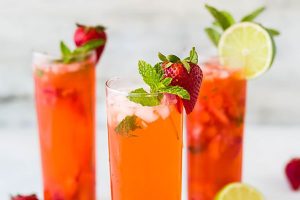Hang out to dry: Resetting alcohol intake
 For centuries, alcohol has been used to celebrate successes and calm stresses. We all create automatic habits, some related to alcohol—perhaps opening a beer when your team’s playing or enjoying a glass of wine every evening. A new year is a great time to step back and observe the effects that alcohol has on your life.
For centuries, alcohol has been used to celebrate successes and calm stresses. We all create automatic habits, some related to alcohol—perhaps opening a beer when your team’s playing or enjoying a glass of wine every evening. A new year is a great time to step back and observe the effects that alcohol has on your life.
What are some of the downsides of alcohol to your body? Here are three, some more hidden than others:
A toxin. Alcohol is a toxin to the body, and therefore, overindulging comes with a few consequences. The body priorities the breakdown and excretion of alcohol as soon as it enters the body. This puts a hold on the digestion of food calories for later digestion or to be stored into fat cells, leading to an increased risk for weight gain and fatty-liver disease over time.
Weight gain. Alcohol, surprisingly, is higher in calories (3 more calories per gram) than carbohydrates or proteins. People also tend to overeat once they’ve had a bit of alcohol, especially on an empty stomach.
Sleep disrupter. Alcohol can impact your sleep. While it tends to have a sedative effect and can help people fall asleep, studies suggest that the breakdown of alcohol interferes with the later, restorative REM phase of sleep. This can make you more restless in the second half of the night, leading to issues the next day with concentration, memory recall and low energy.
Making a change can be a challenge. Some people do well quitting cold turkey, like with the “Dry January” movement. Here are some ways to ease into a changed relationship with alcohol:
- Add a glass of seltzer or plain water in between alcoholic beverages. You’ll stay better hydrated, plus your hands will stay busy!
- Track the times of day that you tend to drink, and see if you can hold off for 1 hour before taking a drink.
- Check your favorite drink’s alcohol content, and find something similar with a lower percentage.
- Find a support person or counselor to help you work through barriers to change and to assist with sticking to your goals.
- Try one of our mocktails (see boxed list below)
Once you’ve started making a change, you will likely experience better sleep, more energy and perhaps weight loss. Your may also find positive changes in your mood. If you’re eliminating large amounts of alcohol over the long term, it can lower your risk for chronic diseases like dementia, heart disease and many types of cancer. You’ll also save money!
If you think you’d benefit from support in making a change and overcoming barriers, PacMed has a wide range of professionals in our Behavioral Medicine team.
One mocktail please, shaken, not stirred.
A mocktail is a cocktail without the alcohol. Give one a try!*
- Citrus Mimosa—orange, grapefruit or pomegranate juice mixed with flavored seltzer water or sparkling cider.
- Pomegranate Mojito—mint, lime, soda water and a splash of pomegranate juice and/or limeade!
- Blueberry Mojito Mocktail—sweet, minty and fresh
- Virgin Bloody Mary—so many bold flavors, you might not miss the vodka!
- Virgin Moscow Mule—try infusing the simple syrup with rosemary
- A non-alcoholic beer … or a seltzer flavored with hops from Lagunitas Brewing Co.
- An after-dinner digestive—like calming chamomile tea or a Tazo dessert tea
*Many recipes call for simple syrup, which is a cinch to make.


